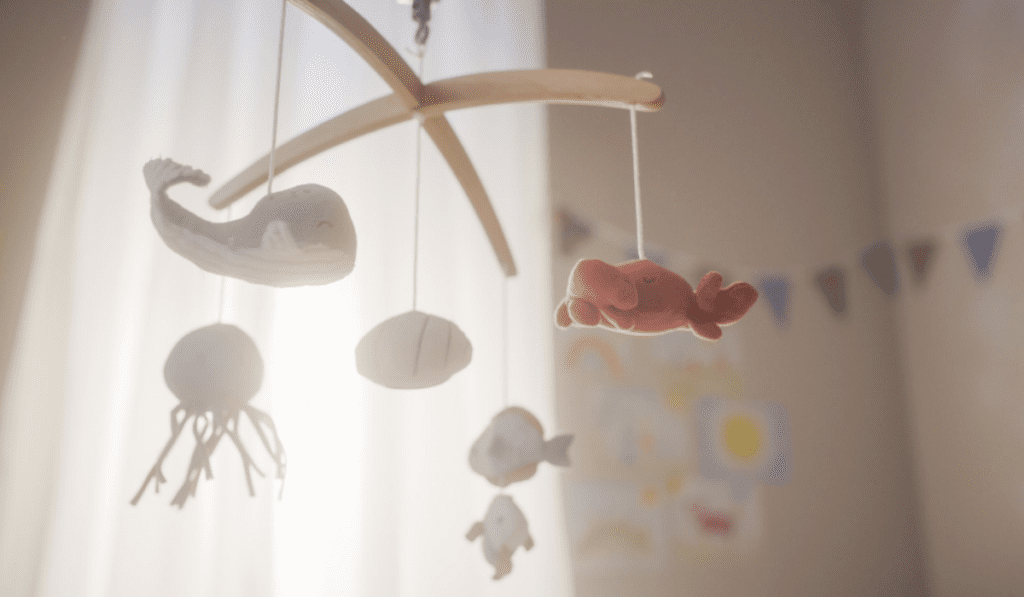Sleep is often one of the most discussed topics when raising a newborn. After all, quality sleep is as essential to your baby as it is to your health. However, understanding how rest works for your baby can feel like trying to solve a complicated puzzle. This article aims to provide the insights and best practices you need to ensure your baby’s sleep is the best it can be. We’ll delve into various aspects of baby sleep, from understanding their unique sleep patterns to managing sleep regression.
Understanding Your Baby’s Sleep Pattern
Infant sleep is quite different from adult sleep, and these differences can often surprise new parents. By understanding your baby’s sleep pattern, you can better meet their needs and set the stage for healthy sleep habits.
Recognizing Sleep Stages
Babies, like adults, have different stages of sleep. These stages include light sleep, deep sleep, and rapid eye movement (REM) sleep when most dreaming occurs. However, the distribution of these stages throughout the sleep cycle varies greatly in infants compared to adults. Newborns spend more time in REM sleep, which is thought to aid their rapid brain development. As they grow older, the distribution of sleep stages gradually resembles that of adults.
Age-Specific Sleep Requirements
The amount of sleep babies need varies with their age. Newborns sleep a lot – up to 17 hours a day. But they wake frequently because their need to eat overrides their need for sleep. By 3 to 4 months, many babies sleep at least 5 hours at a time. By six months, nighttime stretches can extend to 9 or 10 hours.
Distinguishing Daytime and Nighttime Sleep
During the first few weeks, infants sleep around the clock, and their sleep patterns are not influenced by daylight and nighttime. But babies are more awake during the day by the time they are 8 to 10 weeks old. As they continue to mature, their sleep patterns align more closely with those of adults.
Sleep Regression: What It Is and How to Manage It
As your baby grows and develops, there may be times when their sleep becomes more disturbed. This is often due to sleep regression, a completely normal part of a child’s development but can leave parents puzzled and exhausted.
Defining Sleep Regression
Sleep regression is when a baby who has been sleeping well suddenly starts waking up at night and skips naps for no apparent reason. This period is temporary and is often linked to growth spurts, teething, or achieving significant developmental milestones.
Causes of Sleep Regression
Typical times for sleep regression are when your baby reaches 4 months, 8 months, and 18 months of age. At these times, developmental changes can affect sleep patterns. For instance, at 4 months, your baby starts to experience the world in a new way, which can disrupt sleep. At 8 months, babies often experience a burst of physical exertion and mental development, which can lead to more wakefulness.
Tips to Handle Sleep Regression
Sleep regressions can be challenging but also opportunities for your baby to grow and learn. To manage them, try maintaining a consistent sleep schedule and routine, offering comfort and assurance when your baby wakes, and practicing patience. Remember, this phase will pass. If you need more guidance during this time, consider joining a support group like our Mama Circle to connect with other moms navigating similar experiences.
Building a Sleep-Friendly Environment
Creating a sleep-friendly environment is crucial for your baby’s sleep. This means ensuring the room is quiet, dark, and at an appropriate temperature.
Ideal Room Conditions
The room where your baby sleeps should be dark or dimly lit. Consider using blackout curtains or a sleep mask if the room gets a lot of light. The room’s temperature should be comfortable — not too hot or cold. The American Academy of Pediatrics suggests a room temperature between 68–72°F (20–22°C).
The Role of White Noise
White noise can be a valuable tool for baby sleep. The gentle, consistent sound can mimic the noises babies hear in the womb, making them feel more secure. It can also help to block out other household noises that might disturb their sleep. You can use a white noise machine, a fan, or a white noise app on your phone.
Safety Measures for Baby’s Sleep Environment
Safety is paramount when it comes to your baby’s sleep. Ensure the crib or bassinet meets safety standards, the mattress is firm and properly fits the crib, and that no loose blankets, stuffed animals, or pillows could pose a risk of suffocation.
Establishing a Consistent Sleep Routine
A consistent sleep routine helps signal your baby when it’s time to sleep, aiding in better, more extended sleep periods.
The Importance of Routine
Establishing a sleep routine early on can be helpful. This routine could involve a warm bath, a bedtime story, and a goodnight kiss. By repeating this pattern, you help establish cues that signal your baby that it’s time to sleep.
Creating a Bedtime Ritual
The bedtime ritual you choose for your baby will be specific to your family but could include elements such as changing into pajamas, dimming the lights, feeding, reading a story, singing a lullaby, and saying goodnight to everyone.
The Role of Naps in the Daytime
Naps are just as important as nighttime sleep and significantly promote healthy growth and development. The timing, length, and frequency of naps may vary, but generally, infants need several naps a day.
Sleep Training Methods: An Overview
When teaching your baby to sleep, there’s no one-size-fits-all approach. Various sleep training methods can guide your baby toward healthier sleep habits.
Understanding Sleep Training
Sleep training is a process that can help your baby learn to fall asleep on their own and stay asleep. It usually involves techniques that encourage healthy sleep habits and can be started when your baby is between 4 and 6 months old.
Different Sleep Training Methods
There are many different approaches to sleep training, including the “cry it out” method, the “no tears” method, and the “fading” method. Each technique has its own philosophy and approach, so choosing the one that best fits your family’s comfort level and your baby’s temperament is essential.
Choosing the Right Method for Your Baby
The proper sleep training method for your baby largely depends on your baby’s age, temperament, and parenting style. No single approach works for every baby, so finding what works for your family might take trial and error. If you need more clarification, consider reaching out for professional guidance. Our mom-baby check-in offers personalized support and advice on sleep training and shaping.
Addressing Night Wakings and Soothing Techniques
Dealing with night wakings can be one of the most challenging aspects of infant sleep. However, understanding why your baby wakes up at night and using effective soothing techniques can make these disruptions more manageable.
Causes of Night Wakings
Babies might wake up during the night for several reasons, including hunger, dirty diapers, illness, teething, or simply seeking comfort. As your baby grows, they start to understand that when they wake up, you come, which could lead to more frequent night wakings.
Effective Soothing Techniques
Several soothing techniques can help your baby fall asleep, such as gently rocking them, patting their back, singing a lullaby, or providing a favorite blanket or toy. You can also teach your baby to self-soothe, allowing them to fall asleep independently.
Teaching Your Baby to Self-Soothe
Self-soothing is an important skill you can teach your baby around 3-4 months old. You can encourage self-soothing by putting your baby to bed when sleepy but still awake. This allows your baby to associate falling asleep with being in bed and not being held.
Feeding and Its Impact on Sleep
The way your baby feeds can have a significant impact on their sleep patterns. Understanding how feeding and sleep are interrelated can help you navigate your baby’s sleep schedule more effectively.
The Relationship Between Feeding and Sleep
Feeding can significantly influence a baby’s sleep schedule during the first few months. Newborns need to feed frequently, which means they also wake up often. As your baby grows and eats more during each feeding, night wakings may decrease.
Night Feeding: When to Wean Off
No set age for stopping night feedings depends on your baby’s growth and development. However, many babies are ready to sleep through the night without a feeding somewhere between 4-6 months.
Proper Feeding Schedule for Better Sleep
Implementing a proper feeding schedule can aid in better sleep. Feeding your baby upon waking rather than before bedtime can be helpful. This can help your baby not associate feeding with falling asleep and helps promote better sleep in the long run.
Coping With Sleep Disruptions During Illness or Teething
Sometimes, sleep disruptions are inevitable, such as during illness or teething. Knowing how to navigate these periods is essential to keep your baby comfortable.
Sleep Disruptions During Illness
Illness can disrupt a baby’s sleep pattern. Your baby may wake up more frequently, whether it’s a common cold, ear infection, or something else. Providing comfort and maintaining as much of their routine as possible can help during this time.
Sleep Disruptions During Teething
Teething can be particularly challenging, as the discomfort can make your baby wake up more frequently. Providing a teething ring, applying a clean, cool cloth to the gums, or using over-the-counter remedies can help soothe your baby.
Tips to Soothe and Comfort Your Baby
Gentle rocking, extra cuddles, or lullabies can help soothe a sick or teething baby. Remember, this period is temporary, and your baby will return to their regular sleep habits once they feel better. If your baby seems unusually uncomfortable or their sleep doesn’t improve, it might be time to consult a healthcare professional. You can contact us via our contact page for additional support and guidance.
How Sleep Impacts Your Baby’s Development
Sleep is not just a time for your baby to rest but also when crucial development happens. Let’s look closer at how sleep impacts different areas of your baby’s development.
Physical Development and Sleep
During sleep, your baby’s body works on growing and repairing cells. Important hormones are released that aid in physical development, including growth hormone. This is why newborns, experiencing rapid physical growth, often spend most of their time sleeping.
Cognitive Development and Sleep
Sleep is vital for your baby’s brain development. During sleep, particularly in the rapid eye movement (REM) stage, the brain forms new neural pathways, helping your baby process what it learned during the day. Good sleep is linked with improved learning and memory skills.
Emotional Development and Sleep
Well-rested babies are better able to manage their emotions. Sleep deprivation can lead to mood swings, fussiness, and a decreased ability to handle stress. On the other hand, good sleep can help promote positive emotions and improve your baby’s social interactions.
Debunking Common Baby Sleep Myths
There are many myths surrounding baby sleep that can confuse and worry parents. Let’s debunk a few of the most common ones.
Myth 1: More Daytime Sleep Equals Less Nighttime Sleep
In reality, sleep begets sleep. A well-rested baby during the day will generally sleep better at night. Overly tired babies can have a hard time settling down and falling asleep.
Myth 2: Skipping Naps Will Lead to Longer Night Sleep
Skipping naps can lead to overtiredness, making it harder for your baby to fall asleep or stay asleep at night. A consistent nap schedule can help ensure that your baby gets adequate sleep.
Myth 3: All Babies Sleep Through the Night by a Certain Age
Every baby is different. Some babies start sleeping through the night early on, while others might take longer. Having realistic expectations and understanding that waking up at night can be a regular part of infant and toddler sleep is essential.
Consulting Professionals for Sleep Issues
If you’re facing persistent sleep issues with your baby, it can be helpful to consult a professional. They can provide guidance and solutions tailored to your baby’s specific sleep patterns and challenges.
When to Consult a Pediatrician
If your baby is experiencing persistent sleep issues, it may be a good idea to consult your pediatrician. They can help rule out any medical issues affecting your baby’s sleep, such as sleep apnea, allergies, or reflux.
The Role of Sleep Consultants
Sleep consultants specialize in understanding and solving children’s sleep issues. They can provide personalized strategies and support to help improve your baby’s sleep. They can also offer reassurance and help you navigate sleep regressions or transitions as your baby grows.
Other Available Resources
You can find support and resources from local parent groups, online forums, and classes besides pediatricians and sleep consultants. For example, the Mama Circle at the Motherhood Center provides a supportive community for new mothers navigating various challenges, including sleep.
Transitioning Back to Work: Sleep Considerations
Returning to work after maternity leave involves a significant shift for you and your baby. Maintaining healthy sleep habits during this transition is crucial for your baby’s well-being and your own.
Balancing Sleep Schedules and Work
Balancing your baby’s sleep schedule with work demands can be challenging. Try to maintain a consistent sleep schedule for your baby, even as your schedule changes. This will provide a sense of security for your baby and help ensure they get the rest they need.
Strategies for Maintaining Sleep Routine
Keep the bedtime routine as consistent as possible. Even if you’re not there to put your baby to bed every night, ensure whoever is looking after your baby follows the same routine. This will help cue your baby that it’s time to sleep. Take over the bedtime routine on days you’re home to maintain that bond with your baby.
Dealing with Sleep Disruptions
Change can often lead to sleep disruptions. Be patient with your baby and yourself during this transition. If your baby’s sleep is disrupted, immediately return to the routine. If sleep issues persist, don’t hesitate to seek help. The Motherhood Center has resources and experts to support you during this transition.
Conclusion
Ensuring your baby gets quality sleep is essential to their growth and development, but it can be challenging. From understanding the basics of infant sleep cycles to debunking sleep myths and recognizing the role of professionals, this process has many facets to consider. It’s important to remember that every baby is unique, and what works for one might not work for another.
As you navigate the winding road of your baby’s sleep habits, know you are not alone. From managing nap transitions to dealing with sleep disruptions, maintaining healthy sleep habits can be challenging, but you don’t have to face it alone. The Motherhood Center is here to provide support, guidance, and expert advice every step of the way.
We invite you to join our Mama Circle, a postpartum support group for new mothers, where you can share, learn, and find companionship on this beautiful journey of motherhood. Furthermore, if you’re seeking childcare services or cannot attend in-person classes, our virtual classes and services are designed to cater to your needs, offering the same level of guidance and support.
Remember, the path to good sleep for your baby isn’t a distant dream. It’s a reality that’s within reach. For more information, contact us today and let the Motherhood Center help you realize that dream.
FAQ
What is a typical sleep pattern for a newborn?
Newborns typically sleep a lot, around 16 to 17 hours a day, but their sleep is distributed throughout the day and night. They tend to sleep in cycles of 2 to 4 hours at a time. Their sleep is primarily called REM sleep, which is sleep’s active, dreaming stage.
When should my baby start sleeping through the night?
There’s a wide range for when babies start sleeping through the night. Some might begin as early as three months, while others might only once they’re a year old or more. Many factors, such as your baby’s development, environment, and feeding issues, can affect this. Remember, all babies are different, so try not to compare your baby’s sleep habits with others.
How can I soothe my baby back to sleep?
You can soothe your baby back to sleep using several methods. Try to calm your baby with a gentle touch or a soft voice. Some babies find white noise or lullabies soothing. Maintain a consistent sleep environment and avoid stimulating your baby too much during night wakings. If your baby is older, try some sleep training methods.
What are the signs of sleep regression?
Sleep regression is when a baby who has been sleeping well suddenly starts waking up more often and has trouble going back to sleep. Signs can include increased fussiness, frequent night wakings, shorter naps, or increased clinginess. Sleep regressions are typically temporary and often align with developmental milestones or changes in the baby’s routine.
How can I maintain a sleep routine when returning to work?
Maintaining a sleep routine when returning to work can be challenging. Try to keep the bedtime routine as consistent as possible, even if someone else puts your baby to bed. If changes in your schedule disrupt your baby’s sleep, try to return to the routine as soon as possible. Remember, it’s normal for transitions to affect your baby’s sleep, and it’s okay to seek help if you’re struggling. Consider joining support groups such as Mama Circle for shared experiences and advice.







